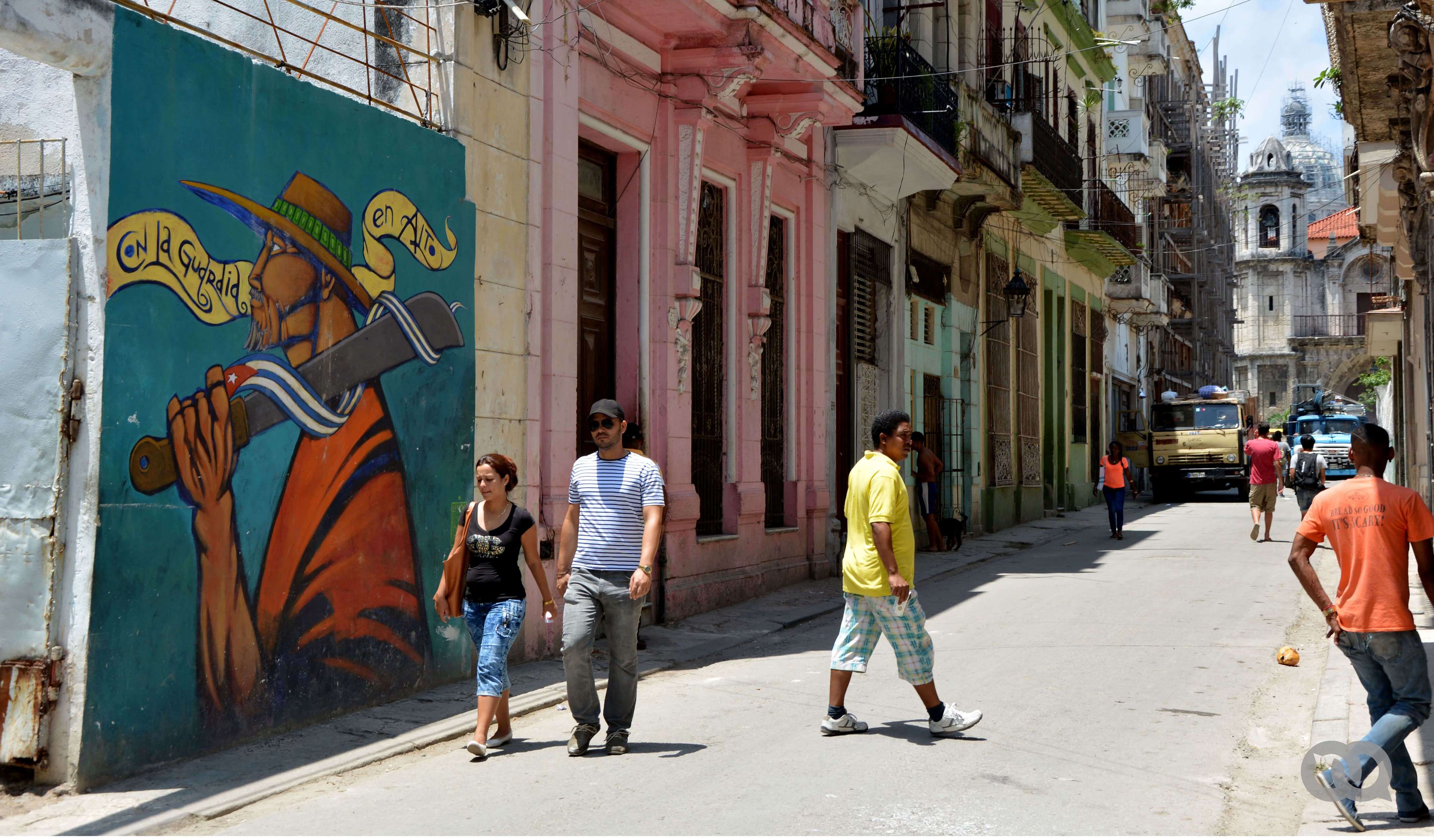COVID-19 is the synonym for uncertainty. The road map is unclear. Its figures are a flood of unease. Science and ignorance fight against each other, in their battle against it. Common sense and selfishness take a firm stand. As do viciousness and solidarity. Our notion of what’s “normal” shatters into a million fragments.
In the fight against COVID-19, the immediate past is like an irrecoverable house of cards. The present is a stunned face. The future is the battle that is yet to come. Politics, sovereign or subjected; the economy, orderly or chaotic; human interaction, essential or disdainful, dictate these dichotomies.
COVID-19 is a watershed. A deafening call for attention. This pandemic demands that we take a position, make a choice, define, raise our voices and hands to push the world towards the utopia we long for. It also demands that we challenge those who benefit from the dystopia that is our world.
Cuba faces this dilemma too, the challenges it brings, the need for taking a stance, the political tug-of-war, complaints and breakthrough decisions. Cubans should be speaking out, suggesting, demanding, pushing and doing things. Silence is a sin in politics. Today, a structural sin.
There are plenty of opinions about how the Cuban government has handled this COVID-19 pandemic. How, when, who and what to do at every moment, gives rise to a vast number of options and points of view. Cries, depreciation, caution, anxiety, reasonable doubt and certainty are some of the different attitudes to concrete problems: what should we be learning from all of this? What country do we want to push for?
This is one of those rare times when we need to talk about politics with a capital P and we need to make noise. Talking about its issues, the way politics are done in our country, its scope and limitations. Talking about its relationship with ethics, aesthetics, sensitivity and historic projects. Talking about possible reconciliations and unsolvable discrepancies.
COVID-19 has pulled the carpet from under the reality Cuba was planning to make progress on. But this doesn’t detract from the fact that this country was already in crisis when this new crisis rolled around, and it had very clear projections on the one hand, and pending matters on the other. Every crisis is a new opportunity, which shouldn’t be taken as an opportunity for other crises, but as a time to ammend frameworks and conditions that have allowed the current crisis to endure for so long.
The challenges that COVID-19 presents for Cuba are drastic manifestations of old, foreign and domestic dilemmas. The wickedness of the US government’s imperialist policies has also been drastic. The example of indecency, disdain and decline in international politics. No matter how shocking these names might be, they don’t hide the real efficiency of these policies in their attempt to hurt, stop and delay Cuba’s conditions for progress.
The clash between world powers is becoming more and more drastic, which moves the tectonic plates of geopolitics, with direct, material and political effects on Cuba.
Incompetence and instability in finding solutions for domestic, structural and conceptual problems have also been drastic. Questions without a response have been drastic, including: how can you keep the COVID-19 infection curve low in favorable, astounding and admiral terms, while, on the contrary, the lines and crowding because of shortages is reaching an alarming rate, exhausting the population and shooting up social tensions? Why isn’t Cuba able to produce food for its population? What path needs to be taken in order to overcome the crisis that has only been exacerbated by COVID-19?
Looking at the much-needed lessons we need to face our post-pandemic reality, I can say that the way politics is done in Cuba is changing. “Interesting” methods and content can be described:
- greater public presence of key officials to inform;
- growing channels of access to information on different platforms;
- a willingness to listen to opinions and proposals coming from different sources;
- a more active dialogue with different social agents and sectors, especially from the field of Science;
- transparency in trial-error practices;
- moderate use of emotional resources in politics;
- clear and stable conceptual ideas in decision-making.
However, these signs of hope need to be further supported by:
- adjusting mechanisms for regional autonomy, which implies a greater capacity for decision-making and education in decentralized political practices;
- outlining steady and legitimate channels for dialogue with civil society, and the drive for organized social initiatives to solve temporary or chronic problems;
- the government’s greater recognition of inequity and social inequality in order to make distribution policies more efficient;
- make debates about different proposals to solve concrete problems more visible, that is to say, debate not just informing the population;
- secure the regulatory use of the Constitution and dismantling the discretional use of laws;
- refute the bureaucratic mindset of creating “a problem for every solution”;
- stress the hierarchy of public over private in discourse and practice; as well as humans over profits, decency and public transparency above secrecy and lies;
- push for the greatest production sovereignty possible, especially in the food production, once and for all;
- reassume that the economy is not only more or less constrained forces of production, but also human relationships, fair or not.
COVID-19 came and imposed itself on the reality that preceded it, and it will leave us a reality that it isn’t really at fault for. Human behavior, collective consciousness, common sense, political decisions and their benefactors, continue to be what has the last word at the end of the day.
COVID-19, as a macro discourse, put utopia and dystopia at heads. As an imperative, it demands that we ask ourselves again: what country do we want? Let’s take advantage of this recovery phase to talk less about COVID-19, and more about politics in Cuba. To do that, there’s a crisis we need to fix.
*This article was originally published in Center Martin Luther King Jr.
This article was translated to English from the original in Spanish.






